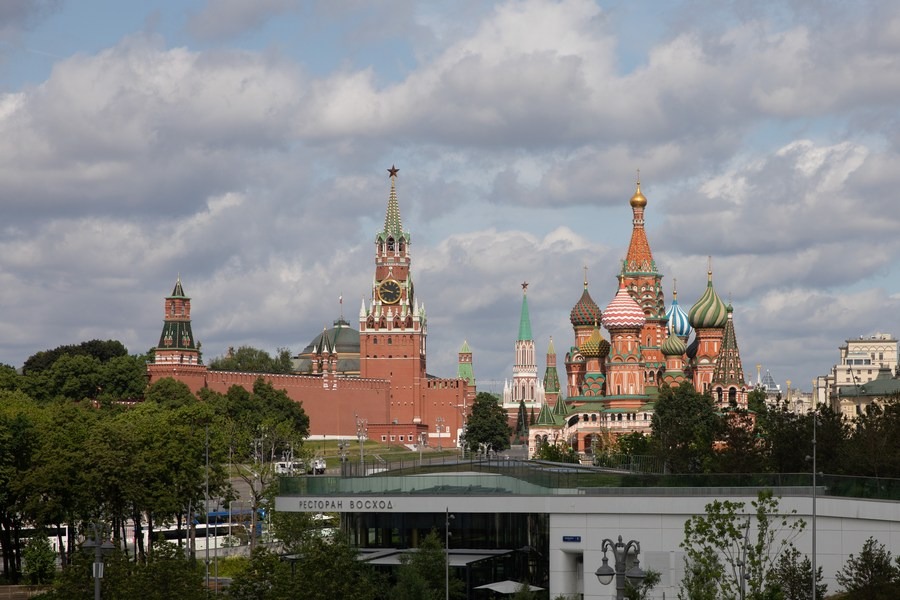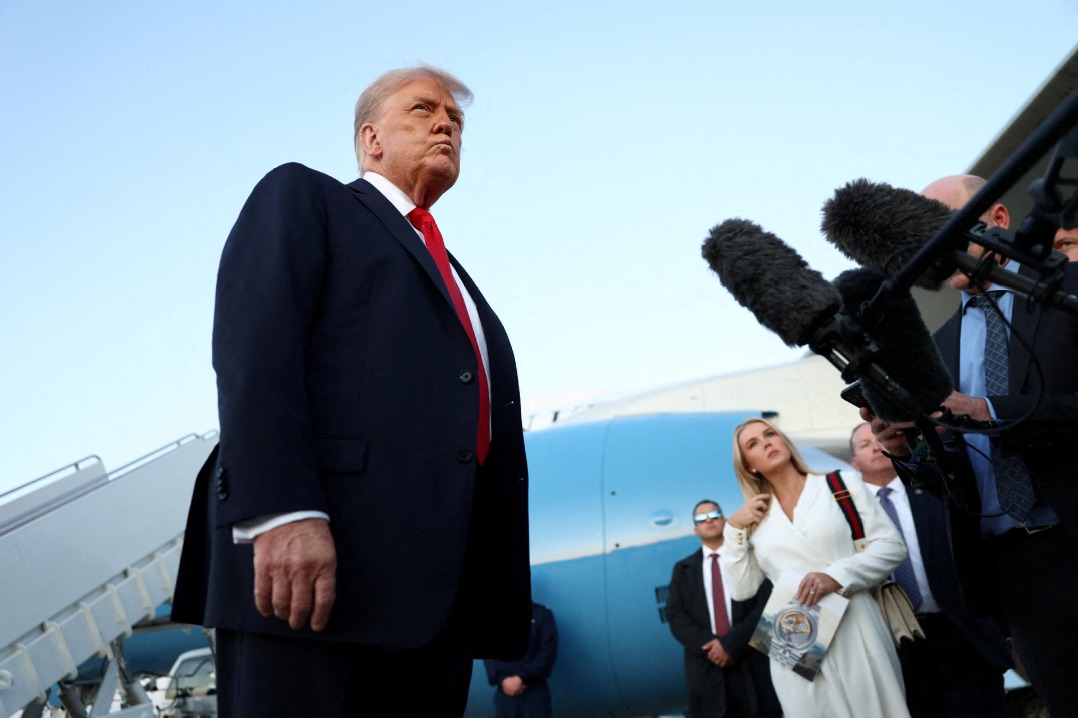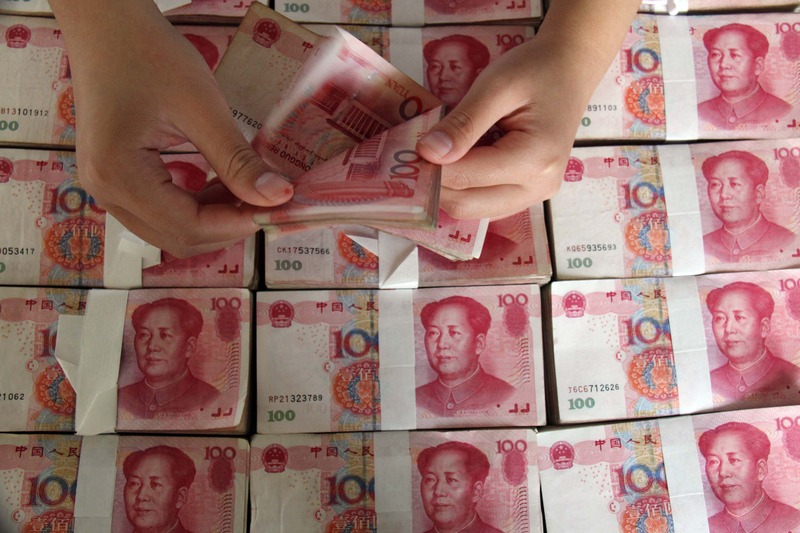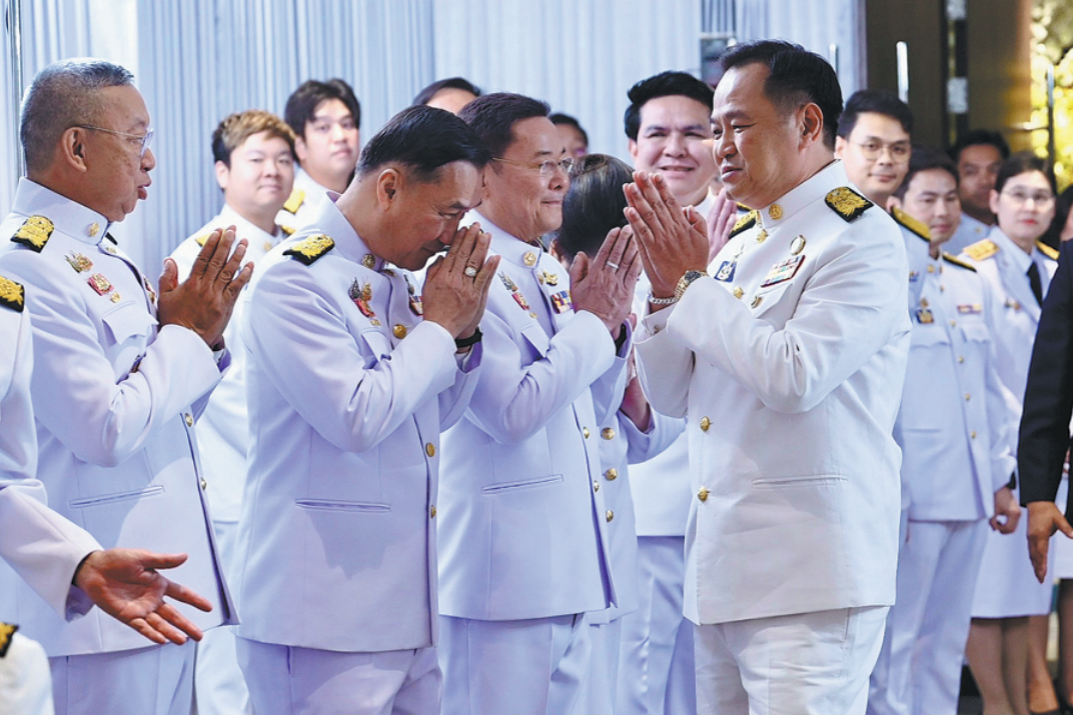US troubles with courts expose divide
Judicial pushback could undermine federal govt's credibility, experts say

The Trump administration is facing a barrage of judicial pushback against its policies, highlighting a growing conflict between the US executive and judicial branches, which could undermine the credibility of the federal government, experts said.
This clash was on full display last week, as US courts ruled against the administration on three high-profile cases, including the freezing of Harvard's research funding, the deployment of military to Los Angeles, and the imposition of reciprocal tariffs on multiple countries.
Since taking office, the Trump administration has pushed numerous highly contentious policies, including strict immigration controls and extensive use of executive power to reshape the federal government. These moves have sparked a wave of litigation, with 337 active cases challenging the administration's actions as of Aug 28, according to data from Lawfare, a US nonprofit multimedia publication.
Diao Daming, a professor of US studies at Renmin University of China's School of International Relations, said, "It's rare in US history to see such a large number of lawsuits targeting a newly elected president's major policies, and to see so many rulings go against the administration."
He attributed this trend to the tension between the administration's unilateral approach to pushing a controversial agenda and the intensifying partisan polarization within the country.
"The Trump administration has relied more heavily on unilateral actions than any previous administration, pushing policies through executive orders without legislative backing," Diao said. "Besides the unilateral approach, the policies the administration is trying to push are also quite contentious in nature, which has led to an unprecedented number of legal challenges."
An article published by the Harvard Kennedy School on June 4 noted that Trump signed 147 executive orders in his first 100 days — a record high — while enacting only five laws, a record low.
Wei Zongyou, a professor at the Center for American Studies at Fudan University, said this reliance on executive power is itself a symptom of a deeper legislative dysfunction.
"Congressional gridlock, fueled by partisan divisions, makes it difficult to pass major legislation. This has forced the president to rely more heavily on executive orders to implement his policies," he said.
According to a Pew Research Center survey conducted in March, eight out of ten US adults say that when it comes to important issues facing the country, Republican and Democratic voters not only disagree on plans and policies, but also cannot agree on basic facts.
Experts warned that escalating partisan polarization and social division have transformed the judicial arena into a key battleground in the ongoing partisan struggle.
Diao observed the increasing politicization of the US judiciary. "While judges are not explicitly labeled as Republican or Democratic, the fact that judges are nominated by presidents with partisan affiliations inevitably leads to them being more aligned with the ideologies of the presidents who appointed them."
Wei said the paralysis of Congress has led both sides to increasingly rely on the judiciary to advance or obstruct policy changes, turning the courts into "substitute legislative bodies".
Politicization of courts
"As both parties realize that controlling the power of judicial interpretation is as important as winning elections, the politicization of the courts is only set to escalate," he said.
The ongoing conflict between the executive and judicial branches, fueled by partisan strife, is eroding public trust in the government and significantly increasing the uncertainty surrounding policy implementation, experts said.
Diao said, "The Trump administration followed its own legal team's reading of the US Constitution. But the judiciary has its own interpretation, resulting in divergent interpretations of the Constitution and the powers it grants to different branches among different political forces."
"This divergence is clearly aimed at furthering one's own interests, a manifestation of fragmentation of power within a partisan context." This situation, he argued, leads to fundamental legal principles, including the Constitution, being sacrificed to extreme partisanship, reducing government credibility.
Wei echoed this sentiment, saying that frequent legal challenges and judicial injunctions against newly issued executive orders and policies foster a perception of governmental paralysis.
"Regardless of the legal validity of these rulings, the constant policy reversals confuse and disappoint citizens, undermining the government's credibility."
"Moreover, the inherent instability of executive orders, which can be easily revoked by a successor or halted by courts, further reduces policy continuity and predictability," he said.
According to a report released on Aug 12 by the Washington-based nonprofit Partnership for Public Service, only one in three US citizens trusts the federal institutions.
yangran1@chinadaily.com.cn

































